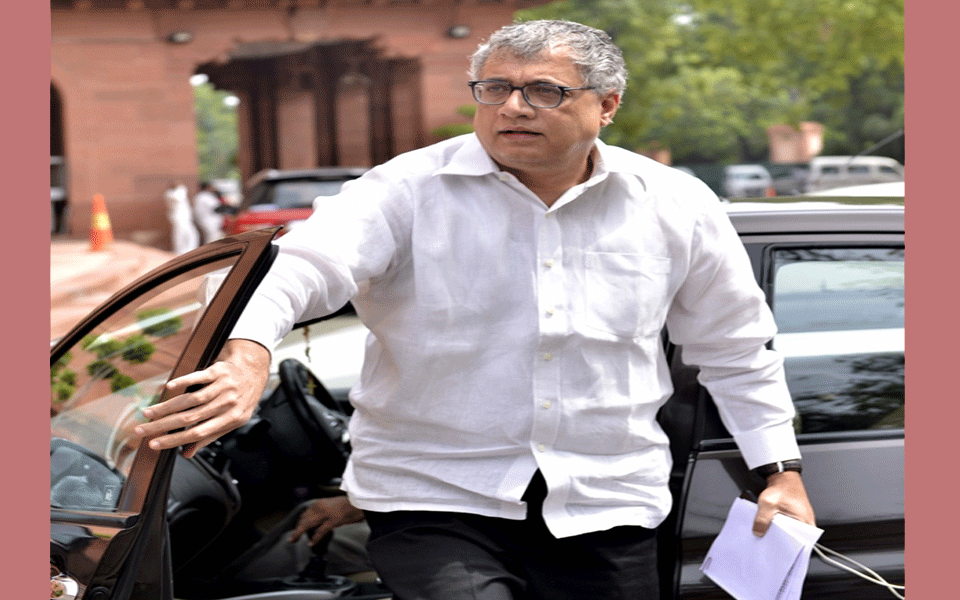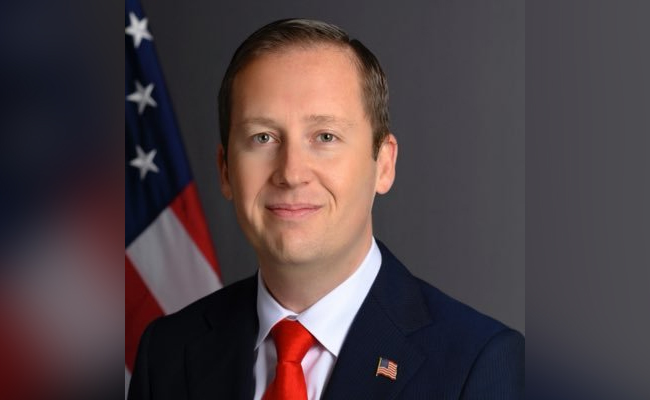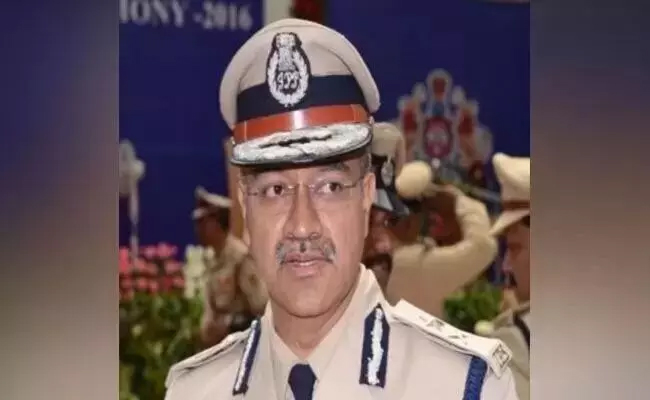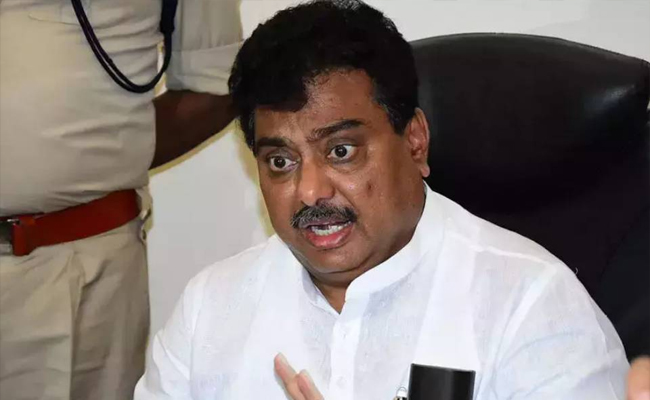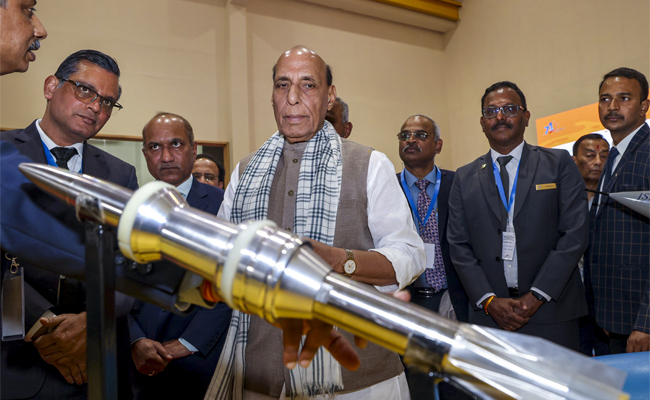New Delhi: The Trinamool Congress on Thursday accused the Narendra Modi government of "murdering" Parliament by way of avoiding and bypassing parliamentary scrutiny of government legislations.
"The BJP is murdering Parliament. In this BJP regime, only nine out of 74 bills passed have been scrutinized by a Parliamentary committee. In contrast, from 2009 to 2014, 66 out of 116 bills passed were scrutinised by Parliamentary committees," Trinamool legislative party leader in Lok Sabha Sudip Bandyopadhyay and Rajya Sabha leader Derek O'Brien said in a statement.
On Wednesday, the Modi government got the Finance Bill passed in the Lok Sabha without any discussion. Earlier, it got the controversial triple talaq bill passed in the Lok Sabha during the winter session after a very brief discussion or accepting any amendments moved by some of the members.
However, Leader of Opposition in Rajya Sabha Ghulam Nabi Azad objected to the Chair's remarks saying no Bill should be passed in five minutes without a discussion on it.
The Rajya Sabha however has no powers to move or amend any money bill on its own and it is the Lok Sabha's prerogative to accept or reject any amendments moved by the upper House on any money bill.
Let the Truth be known. If you read VB and like VB, please be a VB Supporter and Help us deliver the Truth to one and all.
New Delhi: A visit by the US Ambassador to India, Sergio Gor, to Chandigarh on Monday has triggered sharp criticism from opposition leaders and social media users, raising questions about national security and foreign policy.
On X, Ambassador Gor announced his visit, writing, “Just landed in Chandigarh. Looking forward to visiting the Western Command of the Indian Army.”
Just landed in Chandigarh. Looking forward to visiting the Western Command of the Indian Army
— Ambassador Sergio Gor (@USAmbIndia) February 16, 2026
Soon after, opposition voices questioned the broader implications of the visit. Congress Kerala, in a post, commented, “Why so much panic? We’ve already seen Pakistan's ISI getting access to Pathankot Airbase with this government's blessings. Didn't they say then ‘Modi ne kiya ho to kuch soch samajh kar kiya hoga?’ Compared to that, this is very small.”
Why so much panic? We’ve already seen Pakistan's ISI getting access to Pathankot Airbase with this government's blessings.
— Congress Kerala (@INCKerala) February 16, 2026
Didn't they say then "Modi ne kiya ho to kuch soch samajh kar kiya hoga?"
Compared to that, this is very small. pic.twitter.com/gNNuAGQBPC
Shiv Sena (UBT) leader Priyanka Chaturvedi also weighed in, writing, “Since India’s national strategic interests are now tied to what US wants India to do, this visit seems to sync with that.”
She further added, “India’s history will remember the de-escalation announcement between India and Pak was announced on social media by the US President before Indians got to know from their own government. US Ambassador is doing the job for his nation, who is doing for us? The answer is blowing in the wind.”
Since India’s national strategic interests are now tied to what US wants India to do, this visit seems to sync with that. India’s history will remember the de-escalation announcement between India and Pak was announced on social media by the US President before Indians got to… pic.twitter.com/rYMq5NhJHA
— Priyanka Chaturvedi🇮🇳 (@priyankac19) February 16, 2026
The visit comes against the backdrop of the growing US-India defence partnership.
Writer and political analyst @rajuparulekar commented on ‘X’, “East India Company is back!”
“Is it allowed for an ambassador to visit any army unit in india?” asked another user.
Several X users expressed concerns over the appropriateness of the visit.
One asked, “Is it allowed for an ambassador to visit any army unit in India?” Another wrote, “Why an ambassador visiting our army places? To talk to Chandigarh lobby for F-35?”
Why an ambassador visiting our army places ? To talk to chandigarh lobby for f-35 ??
— Rohan Sagar (@RohanSagar03) February 16, 2026
“We have completely sold Indian sovereignty. Rothschild the evil Bankers will now control NSE. Modi sold Bharat Mata to Trump . And now American imperialist is visiting our army command . Scary,” wrote another user.
“The Indian Army isn’t part of geopolitics, so why is he interested in visiting there?,” opined another.
The Indian Army isn’t part of geopolitics, so why is he interested in visiting there?
— Aditya Pratap Singh (@Adi_IIMCIAN) February 16, 2026
On Sunday, Gor welcomed Admiral Samuel Paparo, Commander of the United States Indo-Pacific Command (INDOPACOM), highlighting efforts to expand the growing US-India defence partnership.
In a post on X, Gor wrote, “Delighted to have @INDOPACOM Commander Admiral Samuel Paparo in India to expand the U.S.-India defense partnership. Now is the time to strengthen vital cooperation between our two nations.”
On Monday, Admiral Samuel J. Paparo Jr visited the headquarters of India’s Western Army Command along with the American envoy Sergio Gor. The delegation was briefed on the formation’s capabilities, its past operations, and future plans.
The American delegation also visited Bengaluru, where they met three start-ups, two in the space sector and one in defence, and participated in an Indo-US conference.

